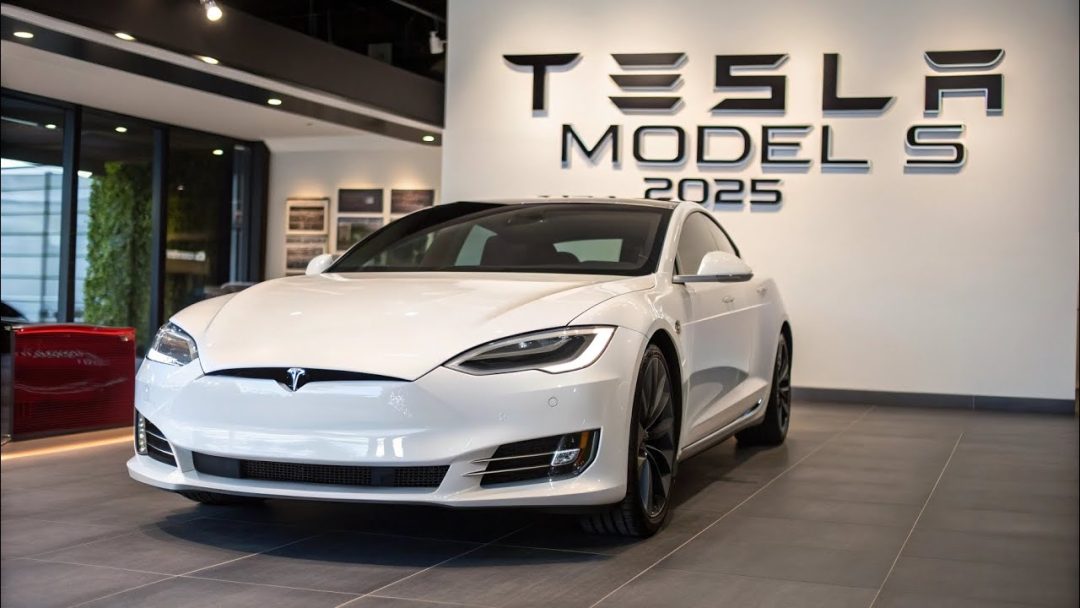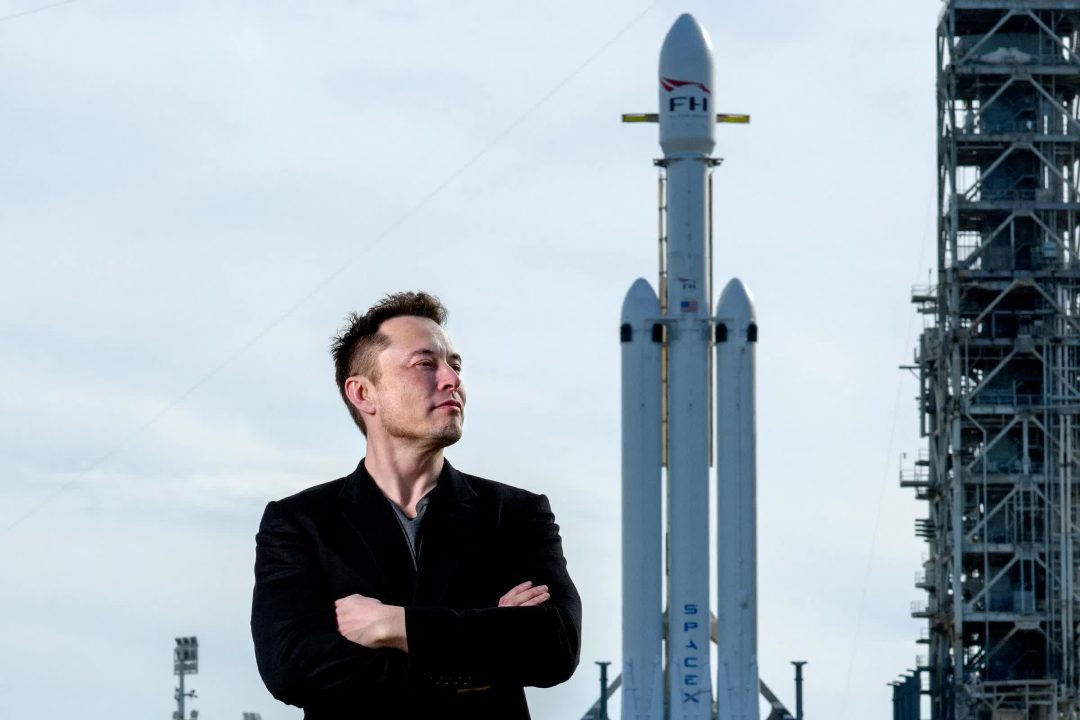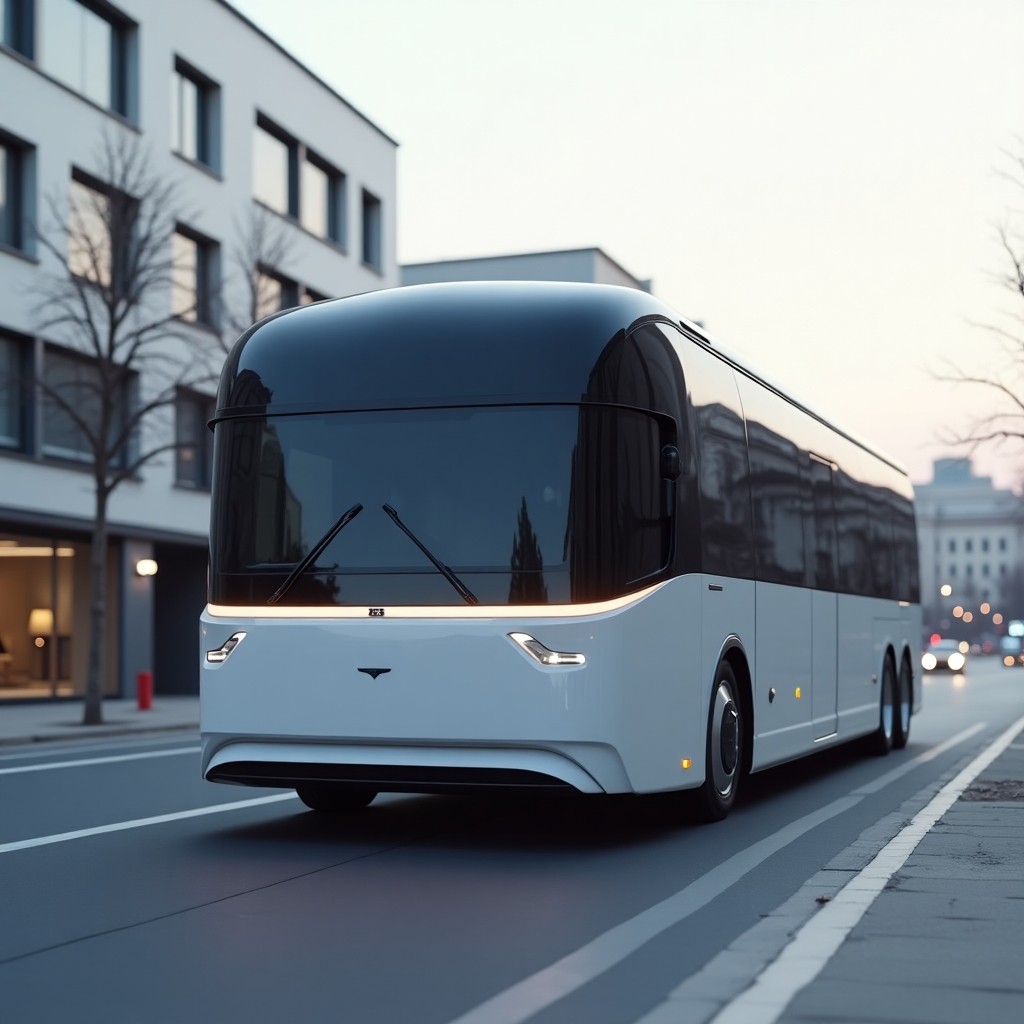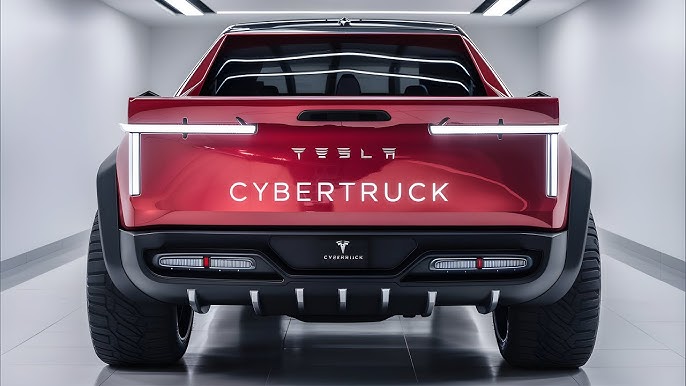It is no secret that since the November 2019 unveiling of the Tesla Cybertruck, a lot has changed. From the size of the initial build that made it on stage in Hawthorne, California, to the various configurations that were once planned to be offered, there is one thing that has changed drastically: the interior, which has been overhauled since its early designs for more space and functionality, rather than to seat an additional person.
Tesla Chief Designer Franz von Holzhausen has called the Cybertruck a vehicle that the automaker will likely never have a “pencils down” approach for. This mentality, in particular, has culminated in years of modifications, changes, and redesigns to the body, interior, and even the powertrains for the upcoming all-electric pickup.
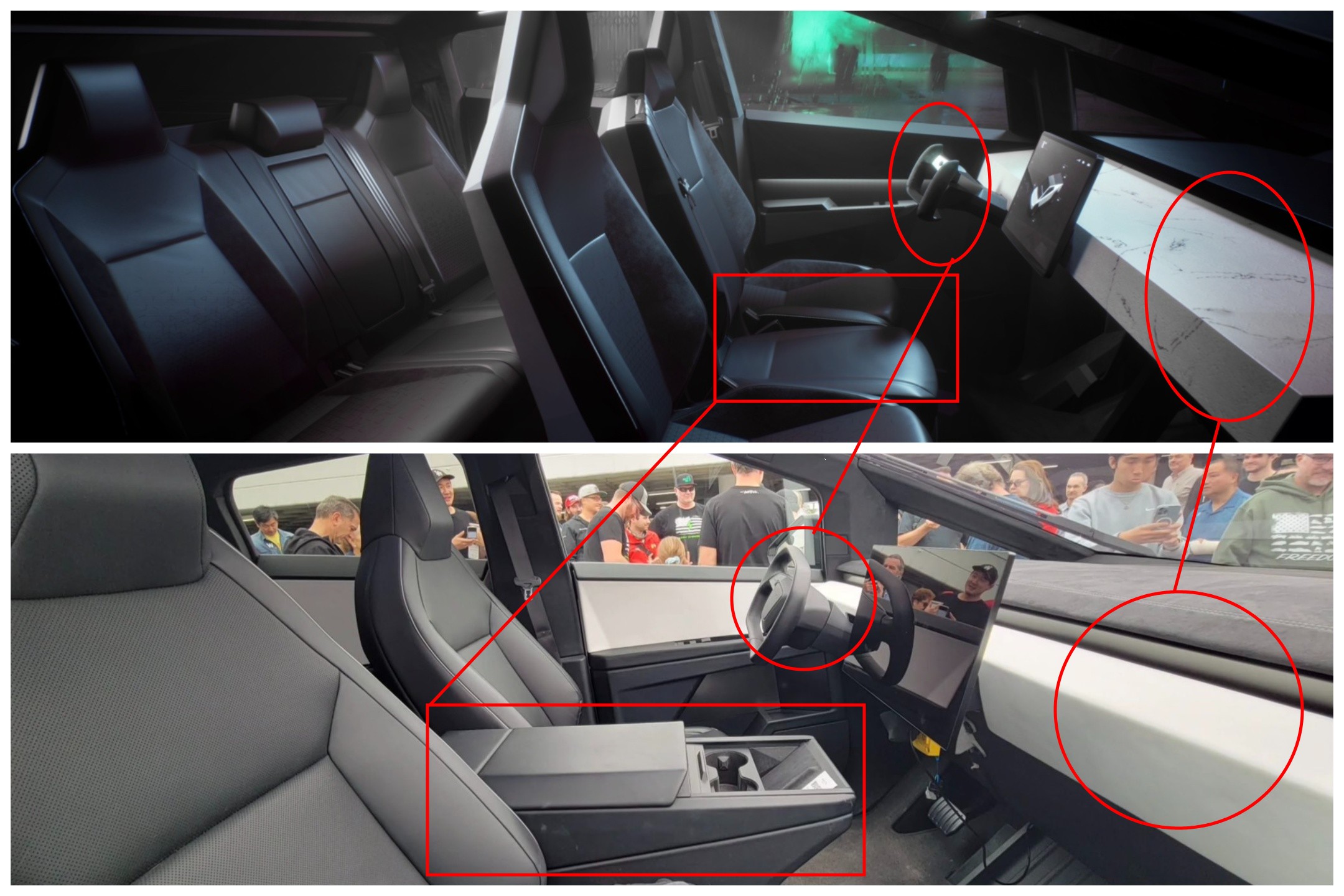
How has the interior changed? It is easier to tell you what has not changed, but it is more entertaining to compare the early builds of the Cybertruck to what is being seen as of this past weekend, as it is likely the recent sightings will be much closer to the actual product that is delivered to customers, which could be within the next 2 or 3 months, according to CEO Elon Musk.
Let’s take a look at the initially-displayed interior that Tesla unveiled for the Cybertruck in 2019.
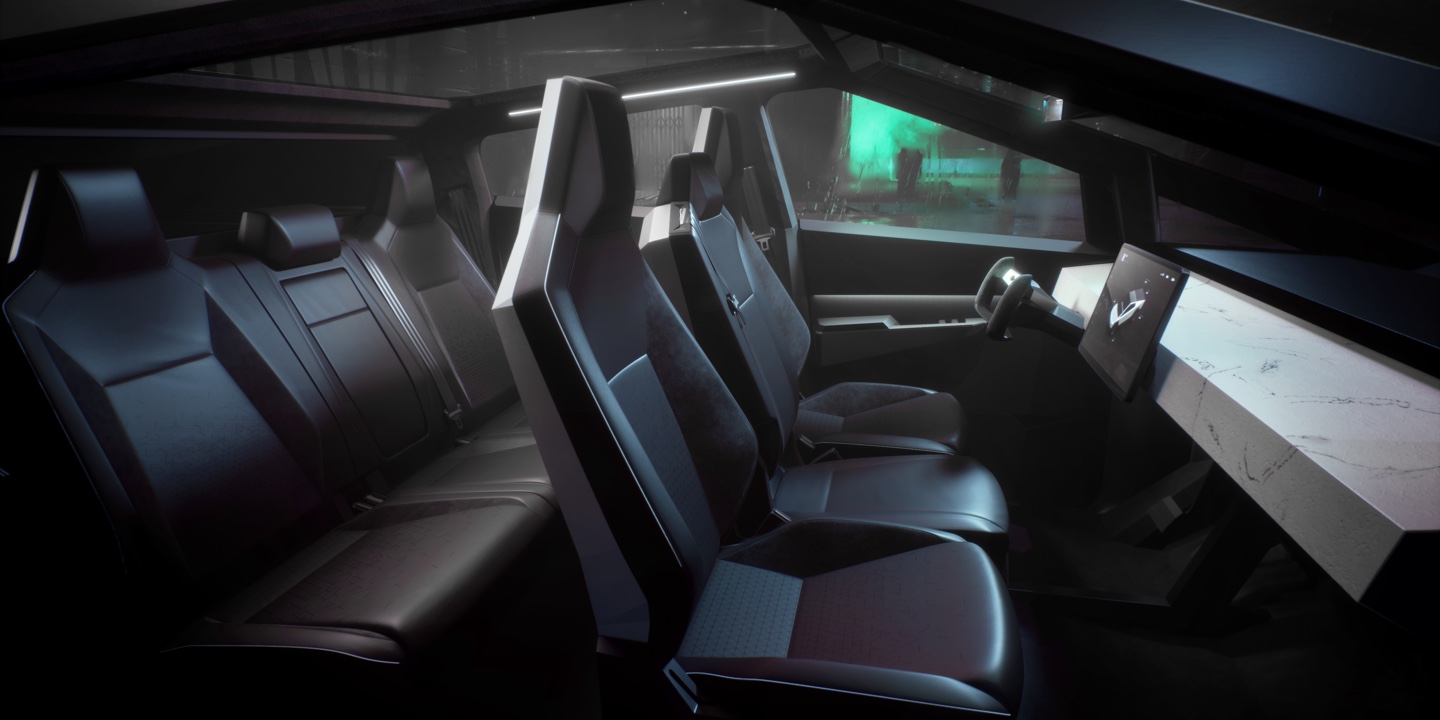
Looking at this press image that Tesla released around the time of the Cybertruck unveiling, we can notice several things:
- Yoke Steering
- Three front-row seats
- Marble dash that is made from recycled paper materials
All of these things have been changed, modified, or taken out of the vehicle in the past three-and-a-half years.
Yoke Steering
The initial Yoke Steering Wheel was exactly that: a Yoke. Tesla first adapted Yoke Steering on the Model S and Model X Plaid. It was a polarizing design that was loved by some and hated by others, but the Cybertruck was technically the first vehicle to really feature the design in Tesla’s lineup, as these images came before the release of the Plaid vehicles.
However, recent designs have shown that Tesla will instead adopt what looks like a hybrid of the two, featuring an enclosed top portion, but it still had a compact design that is similar to the yoke in terms of size.
We saw this for the first time at Investor Day in March.
This has seemingly been fitted on numerous Cybertruck builds as of late, as sightings of the truck during this past weekend’s appearance at the Petersen Automotive Museum in Los Angeles have the same “closed” Yoke design that is seemingly a mix of that and the regular round design.
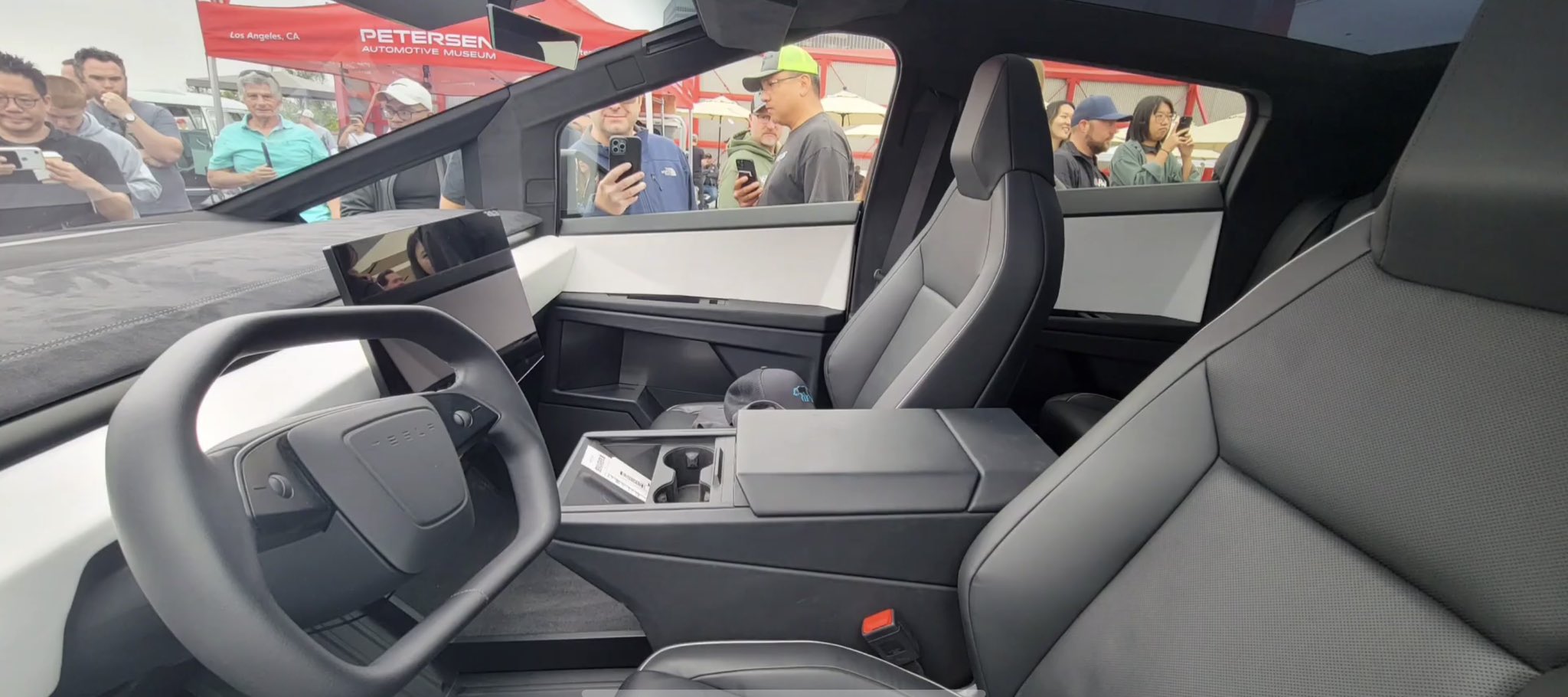
Credit: Greggertruck | Twitter
Front Row Seating Changes
Initial iterations of the Cybertruck showed a three-seat front row, with the middle seat being a fold-down as large pickup trucks on the market currently have.
“Bench seats,” as they are commonly referred to, offer versatility for an additional passenger. They can also fold down and present a center console for storage, cup holders, and an arm rest.
However, as seen above, it appears Tesla will not equip bench seats in the Cybertruck like it planned to early on. This is instead going to be a permanent center console. This may have been a result of the smaller dimensions of the vehicle, which the automaker revised in an attempt to make it fit in regular parking spots and Boring Company tunnels.
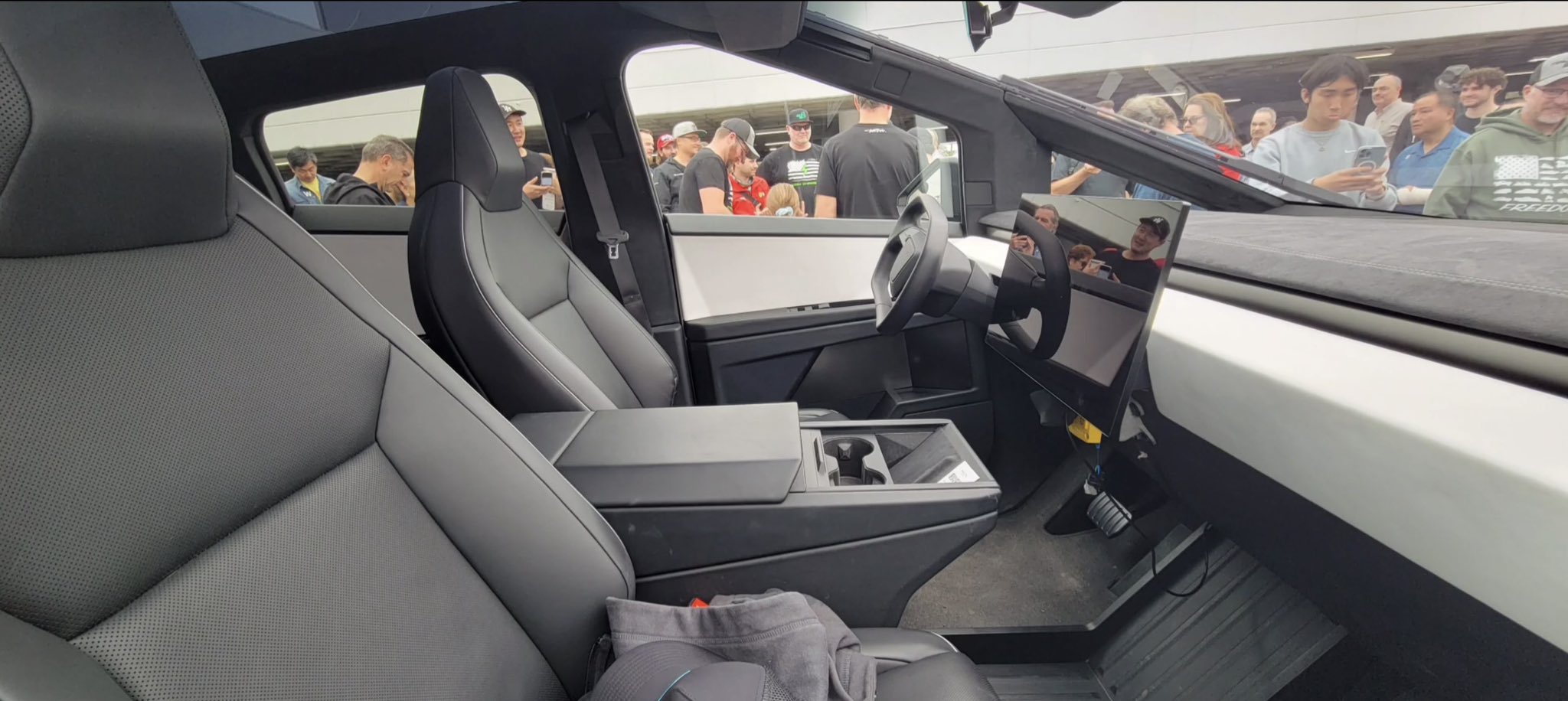
Credit: Greggertruck | Twitter
Marble Dash
We reported just after the Cybertruck unveiling that Tesla would use recycled paper composite materials that create a durable and sustainable dash that looked clean and contributed to the vehicle’s eco-friendly nature.
The initial design of this was extensive, as the early images show the marble dash extending back toward the windshield considerably. Tesla still has the marble dash design in the newest Cybertruck designs, but it is considerably different than before.
It has been scaled back considerably as the vehicle has progressed through design changes.


